Above: Edvard Munch, “Hospital Ward” (1897—1899).
“Have I not suffered enough, that you seek to increase my misery?” – Mary Shelley, “Frankenstein” (1818)
Over the years, I’ve spent countless hours in hospitals. At times, due to my own ill health, but usually while accompanying friends who had to undergo some sort of test or to have surgery. For the most part, I discovered that the major medical centers in and around San Francisco are well-run and clean. Although, usually at the older hospitals, which maintained a facade of historical respectability, I had a few particularly ugly experiences: one morning, I walked in to visit a friend, he was recovering from a surgery performed the previous day, and immediately saw that he was violently shaking and burning-up with fever – the nurses who were assigned to him, were overworked and oblivious to his condition. Years later, after undergoing a severely painful corrective procedure to my lower colon, I returned to a hospital emergency room because something had gone wrong; like my septic friend, I laid unattended for hours on a gurney as I bled-out; the over-stressed resident physician told me I had to spend the night, but there were no beds; I had to stay in the emergency room; after a few more hours, with not even a drop of water to moisten my parched mouth, I signed a voluminous stack of papers and checked myself out; a friend drove me home. At another, I will never forget spending the night in a hospital with a very ill friend; for a few moments of reprieve, I sat in the hospital cafeteria drinking some coffee, as I looked across the nearly deserted dining room area, I watched as a large rat scampered across the floor. I put my cup down and went back to my friend’s bedside. Afterwards, I related what happened to another friend. Although this hospital was located the closest to my neighborhood, I told him: “I don’t care if I am dying, don’t take me there.”
Malpractice, incompetence, and just plain negligence – I saw all of them over the years. In other circumstances, they are somewhat forgivable, but in the realm of health-care, they can cost lives. When I returned to the Catholic Church in 1999, I saw it all over again; and it cost lives.
Like nearly everyone who is suffering due to their health, when I came back to the Church, I was in a vulnerable state; similar to a critically ill patient, I was placing my life in the hands of doctors and nurses – trusting in their skill and expertise. In the Church, this wasn’t an easy leap for me to make because I had been butchered at their hands before.
When I was a kid, most of the time, I viewed the priests as overly-friendly and irrelevant; I cringed when they invited the children into the sanctuary, just before the Consecration, in order to link hands with us around the altar. Outside of Mass, I avoided them.
In the midst of hopelessness, sometimes we make desperate choices. I remembered a dear friend battling AIDS in the early days of the epidemic when medications and therapies were limited and somewhat ineffective, like a cancer-stricken Steve McQueen, he too sought out alternative treatments. At 16, I was hurting and isolated from the few men in my life; so, I looked for consolation and reassurance from a Catholic priest; he only made everything worse. In his estimation, I had to accept something about myself; I had to believe, and I had to have faith, that God made a certain way. I was special. Few might appreciate me – but he could.
In my 20s, I would occasionally come across a priest in San Francisco; at the funerals or same-sex “weddings” where they officiated, they seemed kind, but cloying. I swore I would never trust one of those witch-doctors again. Especially in terms of their early support for gay marriage, I felt as if they played upon the fears of a few who longed to maintain a connection with their childhood upbringing in Catholicism; even though I was completely uneducated in matters of the faith, I knew they were promising the impossible. Like the purveyors of superstitious cures, potions, and healing crystals, they found their incentive, not in the lucrative cash-income made by a patent medicine huckster, but through the power they wielded over the naive. Like the priest who influenced me, such men become almost a gnostic physician – only certain specialists can fully understand and interpret the true intentions of God. In such surroundings, a second opinion is almost impossible to find.
Whatever spell they had cast upon me when I was a lonely boy, I thought it long broken; then, one of them befriended me. And, I got sucked in again.
What I thought was just another betrayal sent me on an already pre-aligned downward trajectory headed towards hell as its only stopgap. While I threw what was left of my life away, my parents, especially my father, profoundly reconnected with his faith. During my intermittent visits at home, I would accidentally stumble across a gathering of one of their weekly Rosary prayer groups; initially, I was disgusted. Drawn by a curiosity of repulsion, I sometimes listened-in; I was most fascinated and dismayed by the seemingly endless personal petitions and special intentions made by those in attendance; usually asking for prayers on behalf of various family members and relatives who were alcoholics, drug addicts, jobless, victims of an abusive spouse, suffering from various diseases and illnesses, or for the recently departed. I thought condescendingly to myself: This is the hope of the hopeless. No one hears, and no one cares.
When my own life fell into despair, I looked up to the heavens, and pleaded for mercy. I became a pathetic replica the Bible’s “prodigal son” amongst the swineherd. Suddenly, those desperate prayers I once heard didn’t seem so stupid anymore. Undoubtedly and profoundly shocking my parents, at their next Rosary, I showed up.
I found a new admiration for the little band of believers that had assembled around them – it was an eclectic and distinctly multi-cultural bunch; male and female, young and old, families and single men and women. In my opinion, what united them was their shared belief that prayer could change the hearts and minds of their wayward loved-ones. The simple devotion of these sometimes-simple people is what inspired me. My father, a largely uneducated immigrant, was not unlike those who prayed with him; growing-up, I always thought my dad to be a rather backward and ignorant oaf. But he was always stalwart in his beliefs that were based, not upon theoretical knowledge or discourse, but on practical experience of what constitutes right and wrong in the world. For this reason, I was inexplicably willing to give Catholicism another try.
What my father offered, was a time-tested home-remedy. Prayer works. But I subconsciously knew that I needed to talk to a priest; specifically, I felt this overwhelming desire to go to Confession. I hadn’t been since grade-school. And, like the precious few people who identify as LGBT, and, for whatever reason, are interested in Catholicism, I went to a parish near the gay-ghetto were I once resided; here, at least, I thought – I won’t be so self-conscious or embarrassed. I’d been here before; I didn’t particularly like them, but I thought I had no other choice. Despite everything, I still believed: God had made me this way. Now, the best I could do was not to act upon my feelings. The priest told me, I could do both: love God and another man. I couldn’t articulate the reasons, but I knew he was wrong. Perhaps, the truth was most evident in my body – beaten, broken, and bleeding as it was. I knew I was sick; I didn’t need a diagnosis, or even a cure – I just wanted a treatment. Anything. And the Catholic Church couldn’t even give me that.
For years, I would go from one practitioner of alternative healing to another; all of them agreed, even before the initial revelations of the sex abuse crisis in 2002, that the mainstream Catholic Church and its current institutional structures were corrupt and in decline. Generally, the world of the Traditional Latin Mass (TLM) provided a sanctuary from the chaos of Catholic moral relativism and the post-conciliar liturgy. Here, I ran into some of those I met at my parents’ Rosary group. They too, were searching.
In the beginning, I felt safe. Here, I thought, no one could harm me. But, someone did. It almost seemed worse than when I was 16, or 22 years old; because I couldn’t excuse being manipulated and exploited on my youth or supposed naivete. All over again, I wondered if I contributed to the situation or allowed it to occur. Why did this keep happening to me? I don’t know for sure. Perhaps, I was vulnerable; and some can sense that. Another option: I was hurting and I was in pain, and they used it against me to their advantage.
There are extraordinarily courageous priests in the Catholic Church, but they are in-residence alongside the deceptive, the abusive, and the monstrous. Currently, the Church is being run as if it were a hospital that should be immediately shut-down by the health department; its filthy, mismanaged, and staffed by a mixture of skilled and sinister physicians; as if the selfless Doc Baker from “Little House on the Prairie” is working alongside Dr. Frankenstein; one is a humble servant to the sick and the poor; the other – an egotistical social-engineer who wants to reconstruct everyone and everything into his personal vision of perfection. In hindsight, I believe that every priest who abused me, didn’t think he was harming me. They thought they were helping, guiding, assisting, mentoring, accompanying a lost soul. And, simultaneously, they were transforming an institution which they believed was insensitive, too rigid, and homophobic. They encourage children and young people to “come out” and “be honest and transparent and open about the way that God created them.” But they won’t do it themselves. Instead, they perform mind-experiments upon the unsuspecting, the abandoned, and the defenseless.
I witnessed firsthand the results of such experimentation: an unsure friend remained in San Francisco and contracted HIV – he eventually succumbed to AIDS; a young man was encouraged to undergo sex reassignment surgery; and my own almost premature demise within the bondage dungeons of San Francisco.
I came out in 1988; arguably one of the worst years to do so; new HIV infections and gay male death rates due to AIDS were peaking. But I believed that I needed to stand in solidarity with those who were fighting to survive and with the men who had already fallen. When I arrived in San Francisco, I wondered if I would only find a wasteland. I didn’t. Although there were signs of the epidemic almost everywhere, particularly in the near skeletal visage and blotched faces of those I would occasionally see on Castro Street, for the most part, the community rallied around their comrades who were stricken. Similarly, in the outside world, the crisis brought about the best in some people; and, in others, revealed the opportunists.
Because, on the peripheries, there were outliers – a group of Catholic religious sisters, founded by a nun working primarily in India, who quietly cared for the dying; and then there were some Catholic priests. Although I think their initial response was based upon actual charity, later I felt as if they almost used the suffering in order to push for a more-inclusive approach; with AIDS ministries as a pretense for the acceptance of homosexuality in the Church. The same priests who buried the dead, by the mid-1990s, were presiding over same-sex weddings; their rationale: I’d rather marry them, than bury them. On a honeymoon, we were all sent the “Hotel California.” Only, their treatment didn’t work. At least for a while, the majority of new HIV infections were from main sex partners. People died; while many of those same priests are still alive or lived well into their 80s and 90s.
I take responsibility for my actions. For well over 10 years, I consistently made the wrong decisions. But during most of that period, I wasn’t self-destructive or suicidal; I thought I was doing the right thing. Like the person with untreated mental illness who self-medicates with alcohol or drugs, I believed that I could heal myself – through acceptance of my true self; it’s an odd sort of fundamentalism that resembles the Christian Science distrust of modern medicine and the anti-psychiatry stance of Scientology. Essentially, the dogma of “God made me gay” is a matter of faith; its main Catholic adherents belong to a grooming cult within the Church. They do not inform, educate, or transmit the truth – they initiate. They are the Catholic equivalent of faith-healers, witch-doctors, and snake-handlers. But, because they view homosexuality as a gift from God, they openly acknowledge that there is nothing which needs to be addressed; healing primarily consists of exorcising our own internalized self-hate and the homophobia that pervades the Church.
For much of my life, the Church repeatedly referred me to such quacks. Apparently, they were the specialists in dealing with someone such as myself. After that, the bishops washed their hands of us. Except they will never completely remove the blood. They allow young men and women to be deceived and abused. Their guilt is worse than malpractice; my only comparison: they remind me of the greedy corporate blood banks, during the early days of the AIDS epidemic, who knowingly allowed tainted blood to be distributed to the public.
“How many people have to die? How many deaths do you need? Give us the threshold of death that you need in order to believe that this is happening…” – Dr. Don Francis in “And the Band Played On”
Over the years, I have spoken to bishops about this issue. Every time, they look at you with the same blank nihilistic stare, as if they are a doctor (completely lacking in any bedside manner or empathy) who just gave you a terminal diagnosis. They offer no answers, no solutions, no hope. Nothing.
When you provide them with the evidence confirming the gross malpractice of their own presbyterate, they would rather permit the continuation of the butchery than to admit their own responsibility.
Some have taken a rather protracted stance to the problem; reform the colleges, universities, and medical schools which train future doctors; as for those already in practice – leave them alone.
In the gay male community, although the HIV virus equally infected the good and the bad, those who were involved in wickedness sometimes met a very cruel and occasionally swift form of justice. Perhaps, the excesses of the few carried death for the many who tried to do what they thought was right. I think back to my unsure friend who listened to a priest and died as a result. Very few of us are completely innocent, but I believe that many in the LGBT community have been deceived; and that is why I continue to reach out to them.
Almost no one in the Catholic Church has fully answered for what they have done; and allow to take place. Those who were culpable and complicit are still in power. Therefore, they have absolutely no incentive to change.
Inside the negligently-run Catholic Church, as I was forced to do at derelict hospitals with my friends, you must become your own medical advocate – for yourself or your loved-ones; you have to demand the care that should be considered mandatory; it’s exhausting; in the Church, such a lack of basic assistance and accountability is inexcusable.
Our Lord Jesus Christ said: “They that are in health need not a physician, but they that are ill.” Sometimes, those who identify as LGBT show up at the emergency-room of the Catholic Church; the physicians assigned to them, do not heal; they hand you a rainbow flag and send you out into the world.
Someone in the Catholic Church once said: “I see the church as a field hospital after battle.” In reality, it isn’t. It’s a death camp. A morgue. As I once told a friend: “I don’t care if I am dying, don’t take me there.”
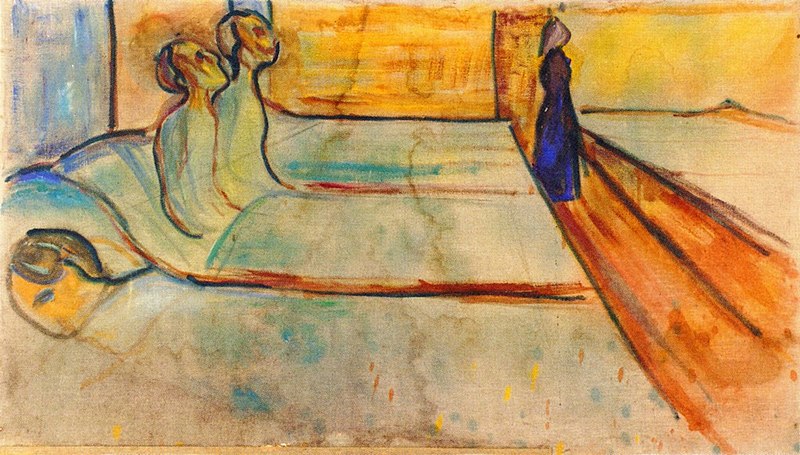
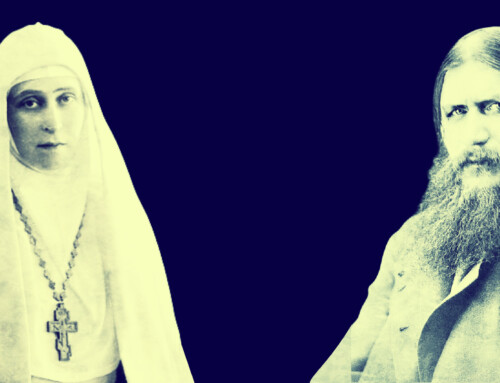
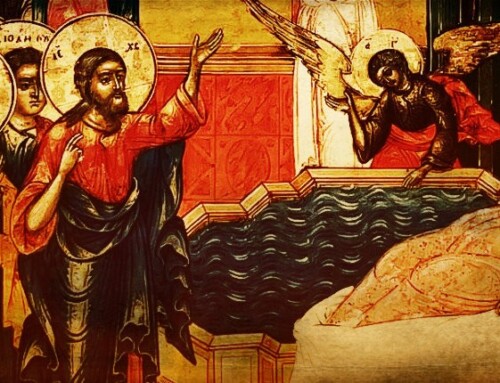
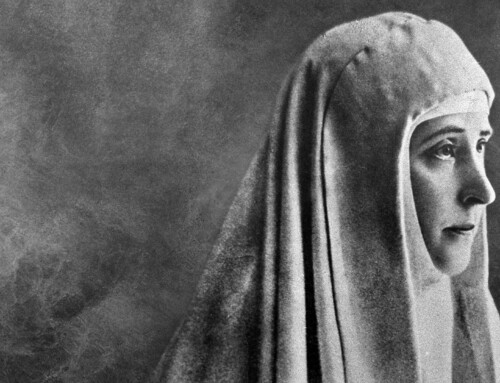
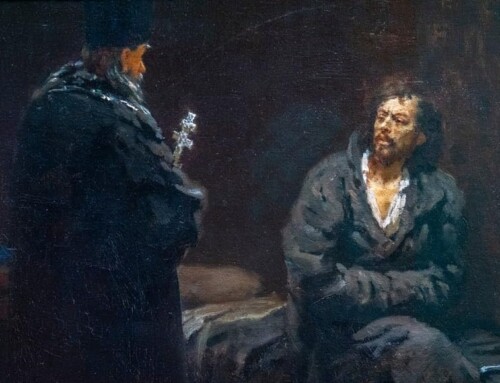
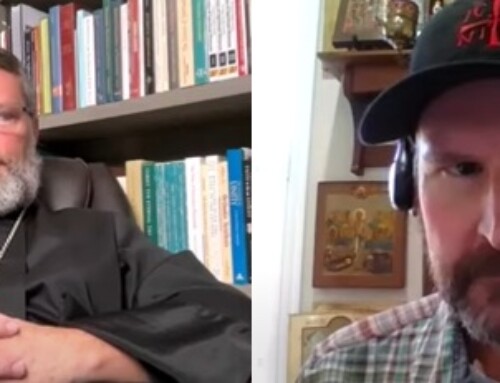
This is very intense but very accurate.
The analogy between Church and Hospital is quite interesting and true.
I worked for many years in the 1990s at NYC’s primary AIDS (not HIV) hospital and all that is described above is so very accurate. After 30 years I can still close my eyes and see visions that I wish I could not longer see.
And yes, although there are many extraordinarily courageous priests in the Church, there are many that are deceptive and abusive, particularly in NYC and other big cities, often highlighted on this blog.
Joseph is correct that reform is happening at medical schools where future doctors and those already in practice are being trained to accept and embrace homosexuality and transgenderism. This is very problematic.
Thank you Joseph and be well.
It’s good of you to share your experiences Joseph, but it would be more helpful if instead of reminding us of how the Church and her priests failed you and others, if you specified exactly what in hindsight you would have had them do and say. Should they have preached about the grave sin of unchastity? Condemned sin without equivocation? What exactly should have been done and what should be done now?
Also, you noted this: “There are extraordinarily courageous priests in the Catholic Church”. Tell us more about them and how they blessed you by example and word.
Just some food for thought….
I am so sorry for you, Joseph. I hope and pray you stay in the Church, despite the damage inflicted on you. You are a suffering soul and have much to say to our flock. I will remember you in my daily rosaries and pray you persevere.
So…Are you going Orthodox?
Accepting lgbt into Christianity (Catholicism) means destroying a base building block in the lego construction that is the faith. The base building block is the goodness, binarity and complementarity of the sexes. So no one should be surprised when the whole thing crumbles down.
If I had believed in (authentic) Christianity during my adolescence, I could have spared me and my family some serious afflictions, physical and mental, but at least I’m alive and I found the faith; others are dead or with mutilated organs, or with serious mental conditions and a bleak view of life.
That’s where lgbt leads.